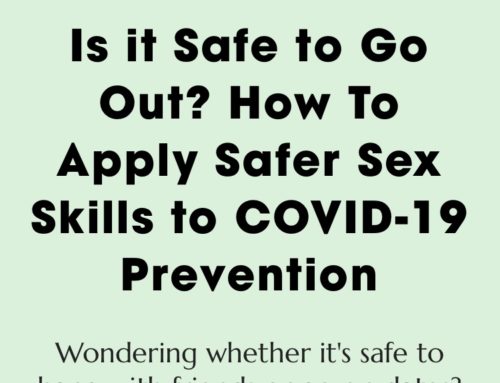Hi Yana,
I recently moved into my aunt’s house, and I now live with my 16-year-old female cousin. Being in her life now makes me realize that I can give her advice on her first relationships and her first love … possibly. When I was 16, I wish I could have had someone in my life to give me advice on the mistakes I was making.
I also realize that 16-year-old me wouldn’t have listened to anything anyone said to me. My cousin is currently interested in a boy that I am not fond of. I don’t think he’s a good guy for her.
How do I warn my cousin of this inevitable heartbreak? How do I tell her to watch her back without ruining our close relationship? I’m pretty lost, but would love to give her some input on her current situation,
— Careful Cousin
Dear Careful,
I made a lot of relational mistakes when I was a teenager. To think about them now as an adult — and as an adult sex educator no less — is downright cringeworthy.
And yet every one of those cringeworthy moments has been a stepping stone on my path to where I am now, having (most of the time, at least) satisfying, healthy, and balanced adult romantic and sexual relationships.
This isn’t to say that I didn’t have valuable guides along the way, as I most certainly did. But rarely were those guides the adults in my life who attempted to control, micromanage, or protect me from ALL mistakes. More often, they were the adults or peers who empowered me to make my own decisions with confidence, self-care, information, and clarity.
They were the people who introduced me to Tapestry Health and how to maintain my sexual well-being without shame; they were the folks who taught me about consent; and sometimes they were completely temporary connections like my high school dean who once sheepishly handed me a “Healthy Relationships Checklist” on the sidewalk and subsequently changed my entire perspective on my budding sex life.
You can’t and shouldn’t try to protect your cousin from every heartbreak and mistake. But you can be an invaluable guide in her sex and relationship education. How? Keep the avenues of communication between you and your particular teen open, authentic, information-accurate, appropriate, and reliable. Here’s some tips everyone could use:
Open: Steer away from shame and towards talking to youth about whatever comes up for them. Keep the caveat that if they’re intending serious harm towards self or others, you will prioritize safety. It’s okay to draw hard ethical lines around issues important to the health and safety of all involved about topics such as abuse, safer-sex, and physical and mental well-being.
Authentic:….continue reading…


